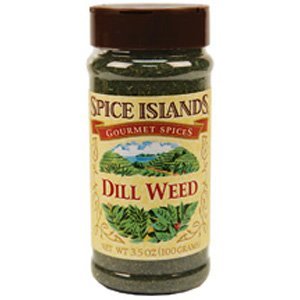 |
| photo from: http://spicesnherbs.net/product.html |
Spices are a vavulable part of your food storage. Yet stroing spice for the long term is tricky. Most spices don't store that long. Here are some general guidelines.
Shelf Life of Whole Spices and Herbs
Leaves and flowers — 1 year
Seeds and barks — over 2 years
Roots — over 2 years
Shelf Life of Ground Spices and Herbs
Leaves — 6 months
Seeds and barks — 6 months
Roots — 1 year
How can you tell if they are still good?
Smell them. If they still smell like cinamon (or what ever) then it is still good to use. If it smells like nothing well then it will taste like nothing.
There are things you can do to extend the shelf life of spices.
1. Proper Storage: Spices should be stored in a cool, dark, airtight container. If you are storing them in clear bottles next to your stove then you can plan on them not lasting very long. As air and light reach spices the flavor deteriorates. I store a small amount of spices in my kitchen and then store larger containers in my cold storage. I have found that keeping them in a dark cold place extends the life significantly.
2. Buy in bulk for value but buy small quantities. Whole Foods Markets are very good sources for bulk herbs and spices, but check around. I have found that my local coffe shop sells spices in bulk. Remember that, bulk does not necessarily mean large quantities. Most prepackaged products are charging a premium for the packaging. I try to have on hand the amount of spices that my famiy will use in a year. Remember to plan for spices you will use in home canning. Many of us plan on using the food we will harvest from our gardens and fruit trees as part of our food storage, yet in order to process those foods we often need spices or other seasoning (as well as pectin, lids, and equipment, but that is a topic for another day)
3. Buy quality spices to begin with. I am cheep. I will say it I have a hard time buying the premium anything. The no-name brand is almost always good enough for me. But I have found with spices (if I am not buying them in bulk) that the brand name does matter. I have had good luck with the Spice Island brand.
 |
| photo from amazon.com |
Spices I commonly used in home canning recipes:
Cinnamon used in apple sauce,
Mustard seed used in pickeling
Tumerac for mustard pickles,
Cumin for salsa,
Dill seed for pickles.
The spices I keep on hand for daily use in quantities that will last me about a year:
Salt
Black Pepper
Seasoning Salt
Garlic
Cinnamon
Chili Powder
Lemon Pepper
Chives
Cumin
Dill
Rosemary
Basil
Nutmeg
Thyme
Paprika
Toasting or Dry Roasting: Use for whole spices
Dry roasting helps to accentuate the taste of whole spices; as cumin, coriander, mustard seeds, fennel seeds, poppy seeds and sesame seeds, although I have found it to be useful with most spices. To toast, heat a dry heavy skillet over medium heat until hot. Add spice(s); toast 30 seconds to 2 minutes or until spices are fragrant and lightly browned, stirring constantly to prevent burning. Remove from heat. Be very careful if you burn them there is no way to save them. Toast only the amount you will be using immediately.
Blooming Spices: Use for powdered spices
When using ground spices, add them to hot oil or butter to intensify their flavor. If sautéing aromatics, such as onions, garlic, or celery, add them to the pan during this time. This is particularly effective when using spice mixes, like curry or chili powders.


